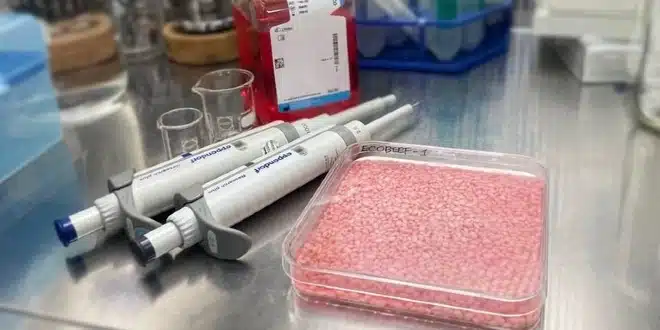In a groundbreaking move, researchers at Yonsei University in South Korea have engineered a novel form of rice infused with beef muscle and fat cells, yielding a rice variant that boasts an 8% higher protein content than traditional rice varieties.
This innovative “meaty” rice creation is suggested as a cost-effective and environmentally sustainable protein source. According to a publication in Matter Journal, this hybrid rice distinguishes itself with a slightly firmer and more brittle texture compared to its conventional counterpart, while significantly upping the protein ante.
The inventors of this hybrid rice envision it as a potential solution to global challenges, such as famine relief, military supplies, or astronaut meals. However, transitioning this product to become a daily dietary staple for the average consumer might present challenges.
The motivation behind the development of hybrid rice lies in its superior protein content relative to both standard rice and beef, coupled with a production process that’s considerably more environmentally friendly than traditional farming methods.
This rice variant is noted for its minimal environmental footprint, particularly in comparison to traditional beef production. The process behind hybrid rice significantly reduces the necessity for large-scale animal farming, thereby lowering resource consumption and greenhouse gas emissions. Research indicates that producing 100g (3.5oz) of protein from this rice results in less than 6.27kg (13.8lb) of carbon dioxide emissions, a stark contrast to the 49.89kg emitted by conventional beef production.
Sohyeon Park, one of the researchers, emphasized the inefficiency of relying solely on livestock for protein, given the high resource and water usage, along with substantial greenhouse gas emissions associated with animal farming. Park highlights the enhanced nutritional benefits and environmental sustainability of integrating cell-cultured protein into rice, suggesting that such hybrid foods could revolutionize our dietary sources of protein.
This venture into hybrid rice is part of a broader exploration into lab-grown meats, which saw its inception with the debut of a lab-grown burger in London in 2013. Following suit, Singapore recently introduced the world’s inaugural cultivated chicken product available to consumers, marking a significant step forward in the development of alternative protein sources.


